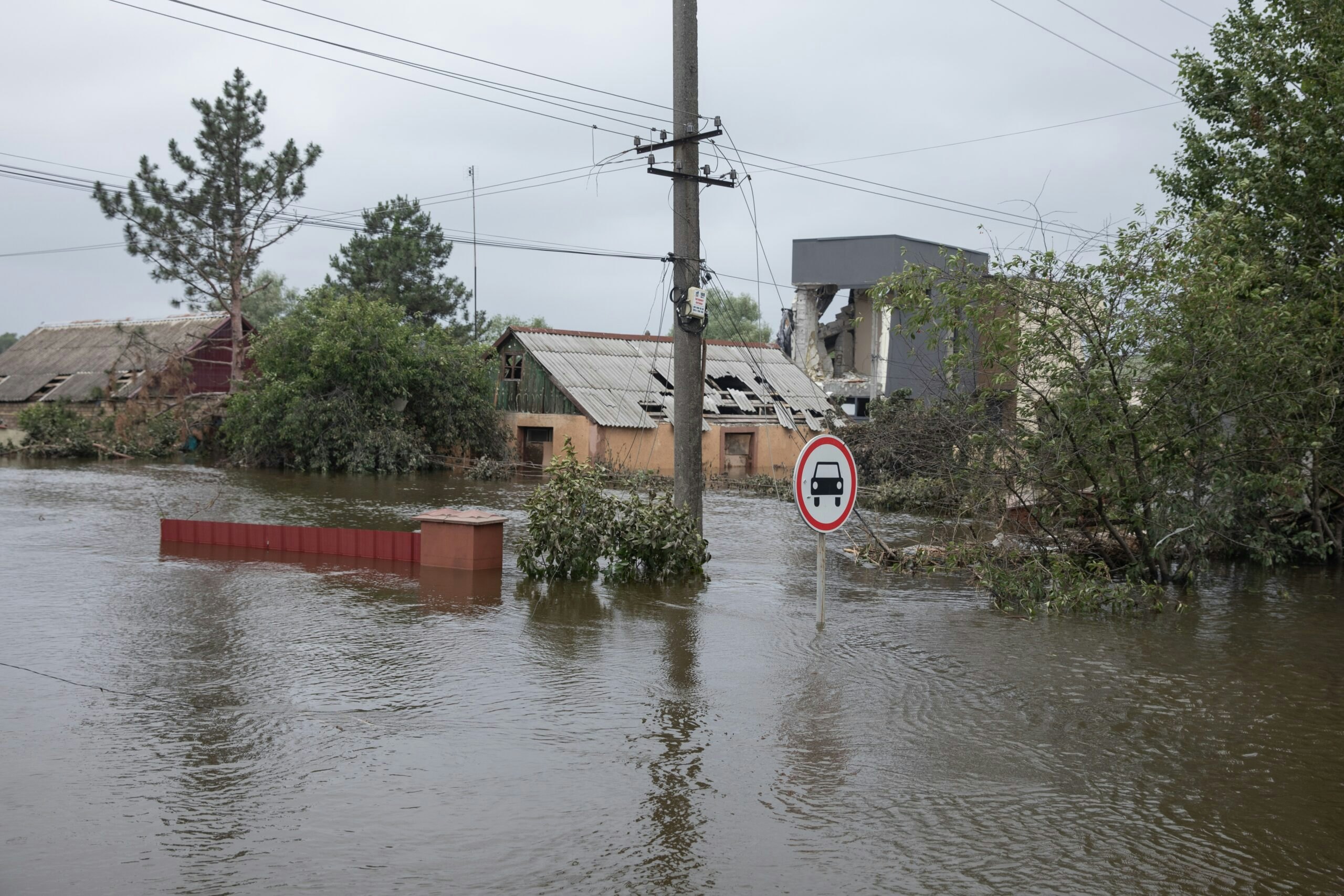On the night of June 6, 2023, the Russian occupation forces in Ukraine likely mined and blew up the Kakhovka Dam in the city of Nova Kakhovka on the left bank of the Dnipro River. The explosion and the breach in the dam unleashed a tidal wave of water downstream that has nearly emptied the 4.3 cubic-mile Kakhovka reservoir, which thereto had been the tenth-largest lake in Europe.
The disaster caused by the dam breach has wiped entire Ukrainian communities off the map and will reverberate for generations, leading to loss of the majority of sustainable agriculture and the unique ecosystems around the Black Sea. In the immediate future, it also threatens the water supply for the Zaporizhzhia Nuclear Power Plant, Europe’s largest nuclear plant, that is likewise currently controlled by the Russian occupation forces.
The Russians likely committed the heinous crime at Nova Kakhovka to delay or stop in its tracks the Ukrainian military counteroffensive that has been in the works for months. They have not succeeded in doing so, as five days later on June 11, Ukrainian President Volodymyr Zelensky signaled that Ukraine has begun “relevant counteroffensive actions.” To date, the Ukrainians claim to have liberated 38 square miles of territory, primarily in the Zaporizhzhia region, though the fighting and advances are taking place throughout the entire line of contact.
The bulk of the fighting lies ahead and it will take weeks, if not months, before any serious judgement can be rendered on the success of Ukraine’s counteroffensive. Ukraine’s allies are urging patience: unlike the Kharkiv and Kherson counteroffensives last year, the Russian forces are now much more dug-in and have created multiple lines of defensive fortifications, including extensive minefields that are meant to slow down Western-provided armor. Ukraine also still lacks modern Western jets, such as F-16’s, to assert air superiority, though there is already a coalition of nations committed to training Ukrainian pilots on Western airframes in the coming months.
The United States and its allies must continue to lead in helping Ukraine to defend its sovereignty and democracy. Supporting Ukraine in our long-term national security interest and our success can deter a revanchist China in a Taiwan contingency. In the near-term, Ukraine will need rapid replacements of Western weapons that will undoubtedly be lost in this current counteroffensive, as the administration has done with the latest package of support. In light of the Kakhovka dam disaster and to deter future Russian war crimes, the Biden Administration should dramatically increase sanctions and pressure on Russia, including considering more seriously designating Russia as a state sponsor of terrorism. These actions would receive plenty of support on Capitol Hill.
In the long-term, the United States must recalibrate its strategic goals with regard to this conflict. The current administration’s formulation of helping Ukraine for “as long as it takes” is tepid and unconvincing. The loose wording is presumably meant to leave off-ramps for both Kyiv and Moscow in a future ceasefire or some sort of a diplomatic settlement, but for now it only gives comfort to those who think the only way to end this conflict is for Ukraine to trade its land for peace. But the reality is that as long as President Vladimir Putin is in the Kremlin, any sustainable peace between Ukraine and Russia is a fantasy. In his imperialist fervor, Putin has firmly made up that Ukraine is “not a real country” and thus should be dismantled as a geopolitical entity, with the vast majority of these “historical Russian lands” incorporated back into Russia.
The United States should lead our allies to set and doggedly pursue two clear goals for this war: 1) provide unconditional military, economic, and diplomatic support for Ukraine until it regains all of its internationally-recognized sovereign territory, including Crimea, and 2) ensure that Ukraine will be admitted into to the North Atlantic Treaty Organization (NATO) that will guarantee its long-term security from further Russian predation, if not at next month’s NATO Vilnius summit at some point in the not-too-distant future. The Ukrainian people, who continue to suffer Russia’s genocidal invasion every single day, will agree to no less.






























